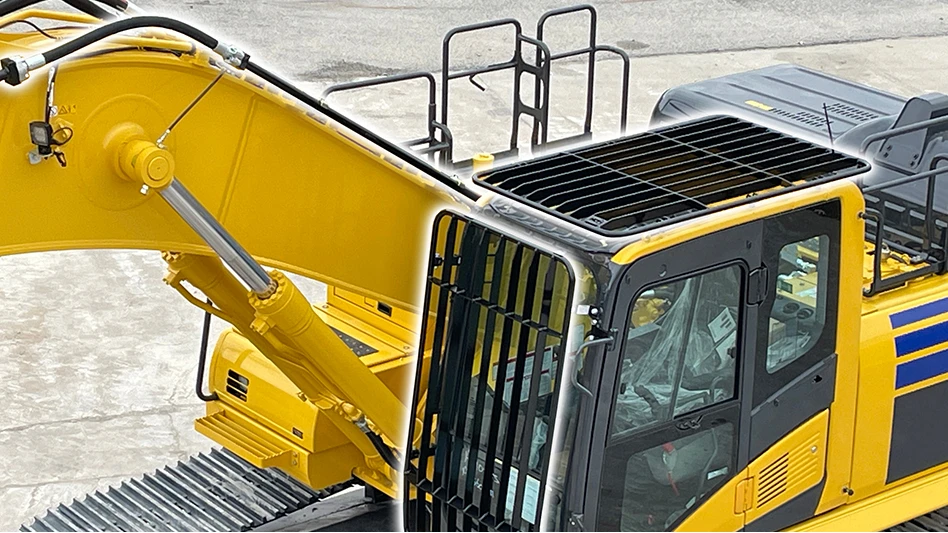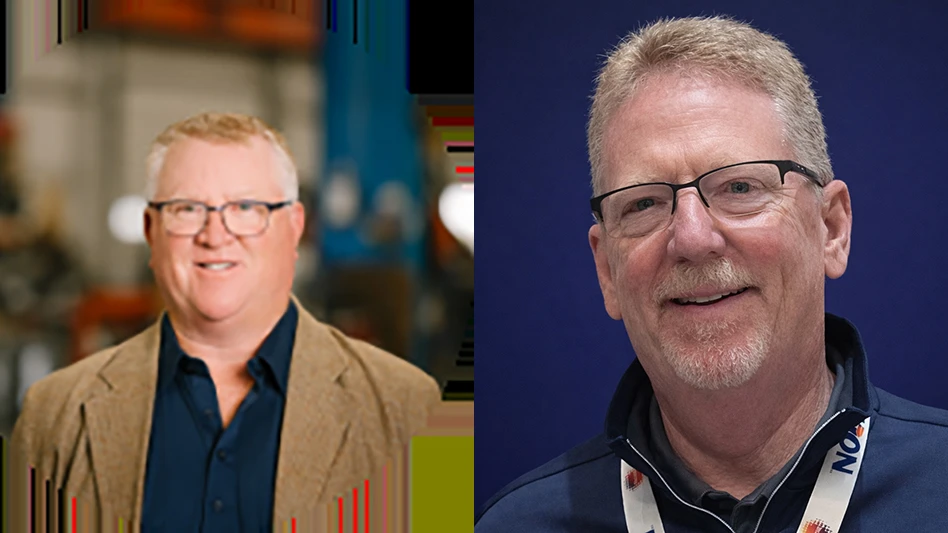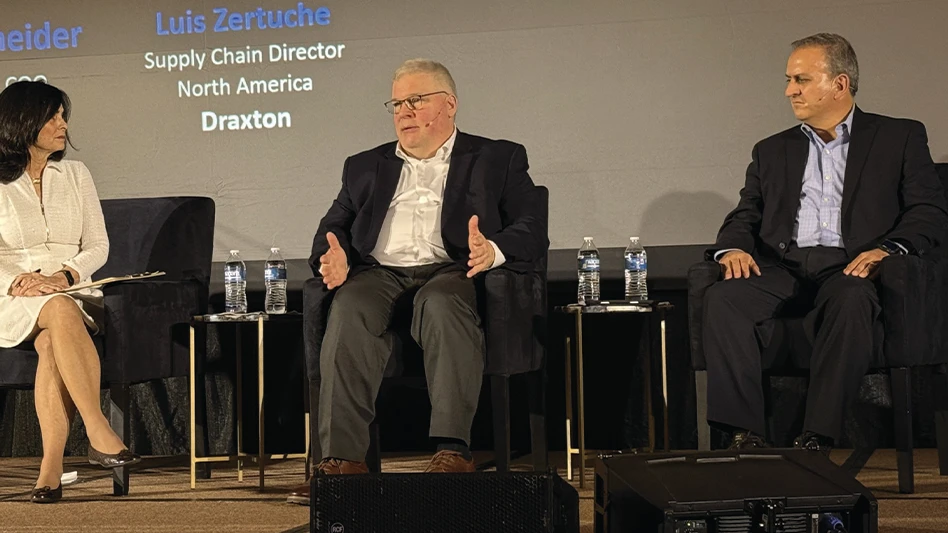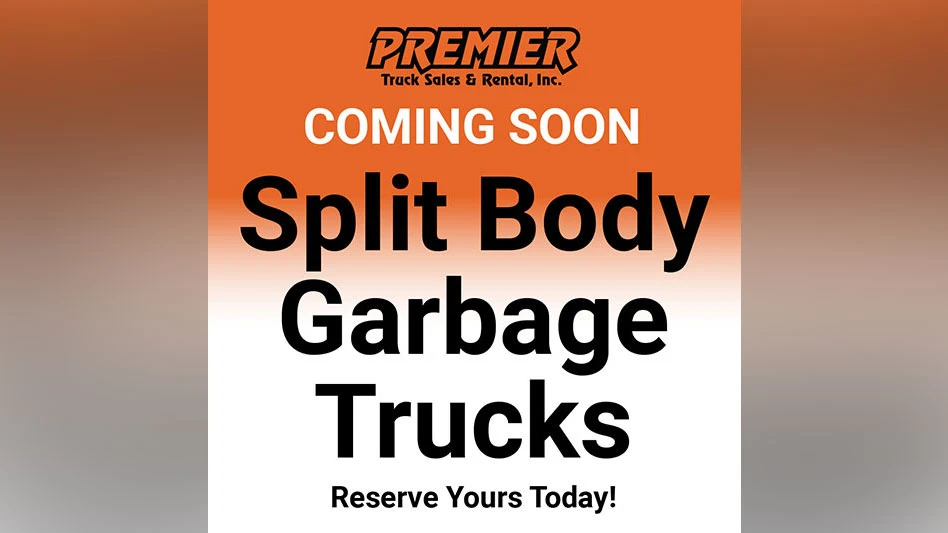
Stadler
Stadler, Altshausen, Germany, has partnered with the Schroll Group, which is based in eastern France, to complete a new recycling center at La Maix in the Vosges near Épinal, France. The center has been set up to process about 80,000 metric tons of materials per year, according to a news release from Stadler on the partnership. According to a news release from Stadler, the center was constructed in about 14 weeks and officially started operating in October 2019.
The Schroll Group specializes in waste management and recycling services. The company operates its own fleet of vehicles and treats about 1 million metric tons of waste annually at its 21 specialized sites. The Schroll Group has developed customized solutions to help customers manage waste and recycling efficiently and sustainably from collection to sorting and treatment of paper, cardboard, plastics, nonhazardous waste, wood, batteries, lightbulbs and recovery of biowaste.
According to a news release from Stadler, the company designed Schroll Group’s Épinal facility to allow for future expansion and for sorting more fractions as well as the possibility of installing robots. At the center, Stadler included two independent sorting lines—one for the treatment of mixed materials and one for containers.
This setup “gives more flexibility by allowing, for example, to work on one line in two shifts and in one shift on the other line,” says Clément Stehlin, a sales manager for Stadler.
According to a news release from Stadler, the mixed materials (multimaterial) plant at Schroll Group’s new recycling center in Épinal takes in 15 metric tons per hour of input, which is fed into a Stadler PPK ballistic separator and two Stadler STT2000-8-1 ballistic separators for mechanical sorting. This is followed by optical separation with four near-infrared (NIR) devices, and the process is completed with manual sorting. The final output fractions of this line are packaging and small cardboard fractions, cardboard, film, newspapers, journals and magazines as well as hollow materials that are fed into the plant’s second sorting line.

The container (hollow materials) line has a throughput of 4 metric tons per hour. According to Stadler, that line sorts the fractions mechanically and optimally, and it ends with manual sorting. The line uses a Stadler STT2000-8-1 ballistic separators, a magnet, a separator for nonferrous metals and five NIR devices to produce an output of clear and colored polyethylene terephthalate (PET), high-density polyethylene (HDPE), Tetra Pak packaging, aluminum, film, mixed paper and residual fractions.
“The Stadler machines in this line are perfect for this purpose and exactly dimensioned for potentially higher throughputs in the future,” Stehlin says.
According to a news release from Stadler, the new plant in Épinal provides pleasant social premises and good ergonomics at the workstations. The facility also features what it calls well-planned, quality catwalks to conduct maintenance operations safely and with ease.
Also, Schroll reports that it’s planning to receive a lot of visitors, including school groups, at the plant in Épinal, so Stadler designed and installed a viewing platform to offer a good view of the facilities in full safety.
“We appreciate Stadler’s ability to meet commitments, advise us and respond to changes during equipment setup,” says Pascal Schroll, a co-owner of Schroll Group.
Schroll Group has partnered with Stadler since the company constructed its first sorting center in 1999. “We immediately appreciated the advice and support of Willi Stadler and Clément Stehlin, their sales manager,” he adds of that initial partnership. “Tests were carried out in the Stadler text center to find innovative solutions to meet our needs. We appreciated the way they listened to us, reacted to our wishes and always took into account the specifications of our material and requirements.”
Stadler has since built five more sorting plants and renovated another facility for Schroll.
“The positive experience of these first contracts encouraged us to work again with this company for the development of our other plants,” adds Vincent Schroll, a co-owner of Schroll Group. “We particularly appreciate the reliability of the machines, the respect of deadlines and the work of the Stadler teams.”
Latest from Recycling Today
- REalloys adds general to executive ranks
- LME takes sustainability premium step
- Smurfit Westrock remains focused on portfolio optimization
- 2026 unlocked: The strategic framework for profitable, efficient and circular operations
- Nebraska cities receive $7 million in waste, recycling grants
- Metals Innovation Initiative appoints sustainability project coordinator
- Aqua Metals aims to acquire Lion Energy
- GFL profits decrease from prior quarter





